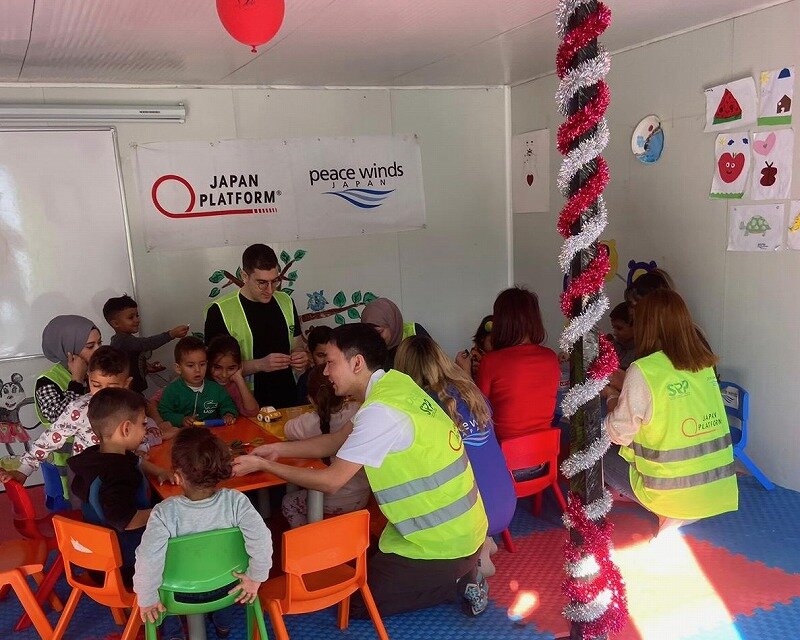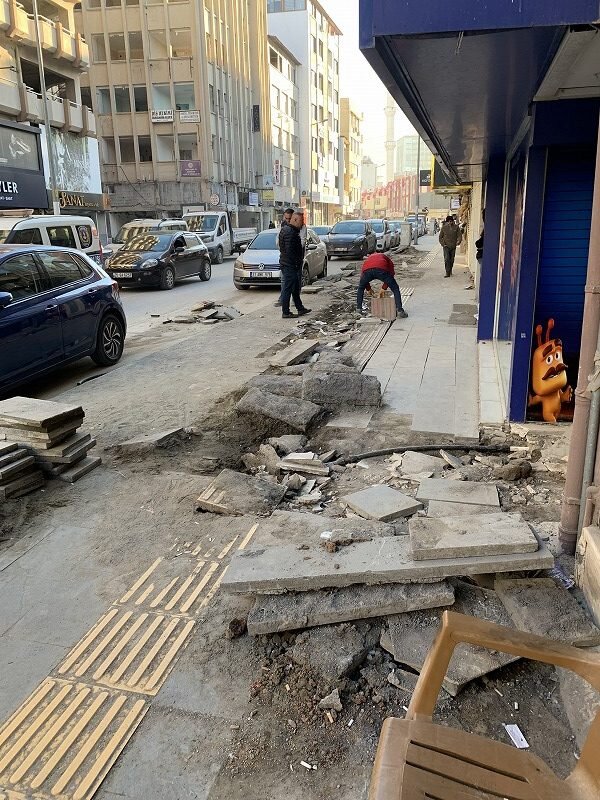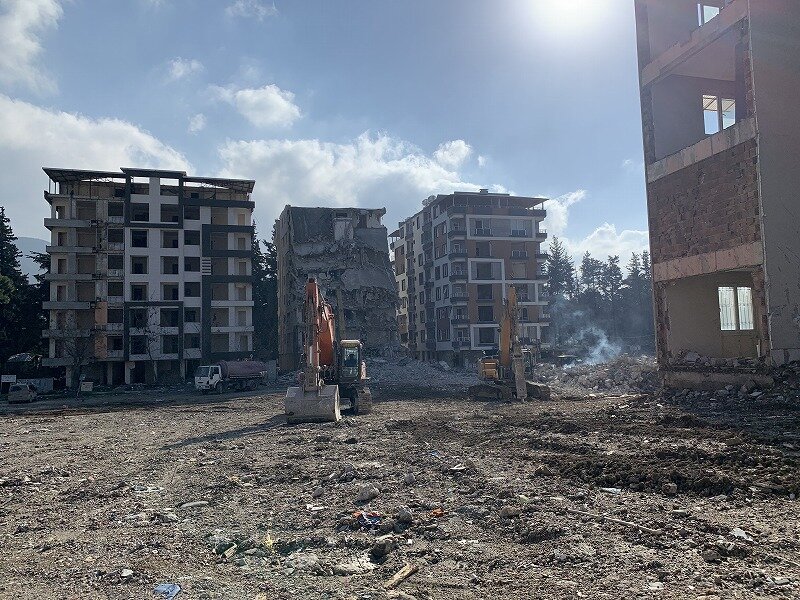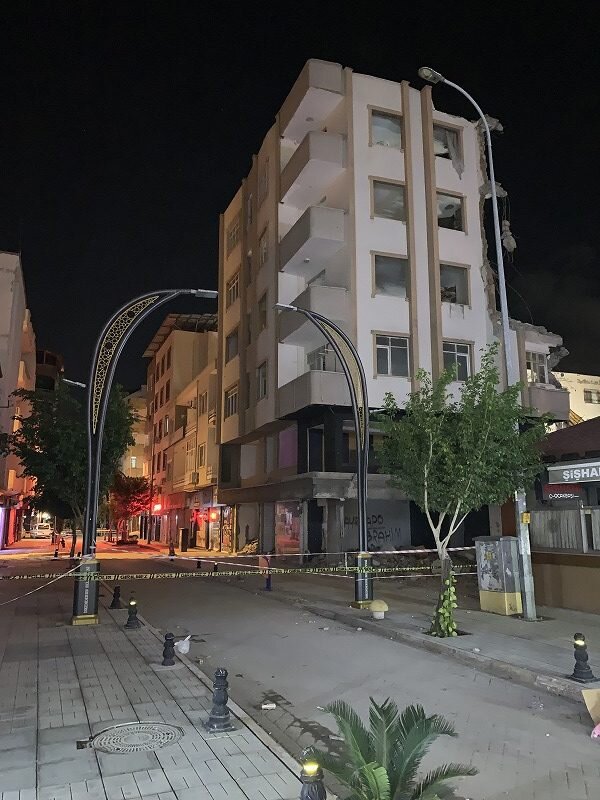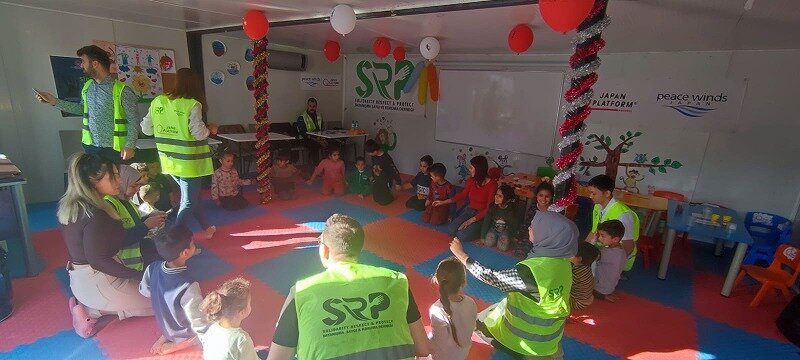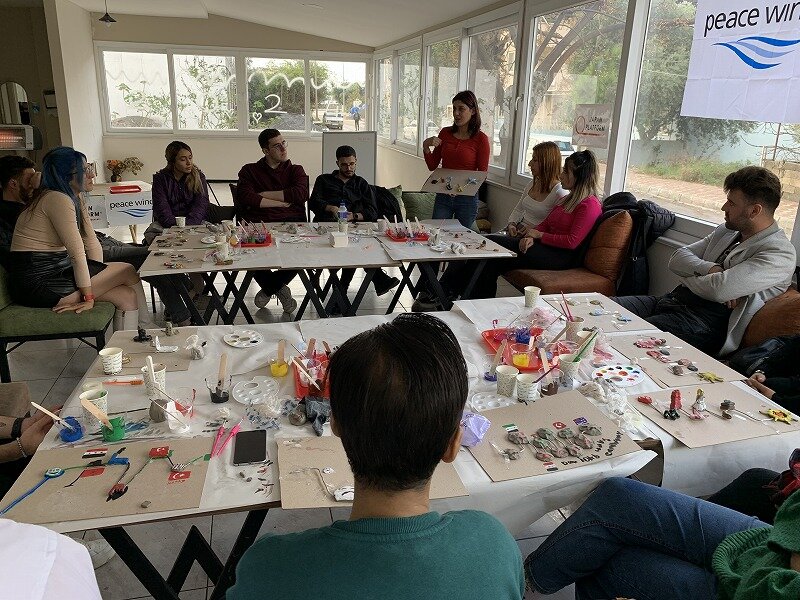By Sarah Maraschky | Communications Associate
One Year After the Earthquake in Türkiye: How Peace Winds and Local Partners are Helping Survivors Heal
February 6 marks one year since a devastating earthquake struck southeastern Türkiye killed more than 50,000 people. The affected areas have been working toward recovery over the last year, with many businesses reopening and construction beginning where buildings collapsed. However, many people who lost their homes and loved ones are still living in evacuation centers and temporary shelters, and the scars of grief remain clearly visible.
Since the start of the disaster, Peace Winds has been supporting earthquake survivors primarily in Gaziantep and Hatay Provinces, some of the hardest-hit areas in southern Türkiye. From search-and-rescue efforts and medical care in the short-term to mental health and grief care a year later, our staff remain committed to supporting those who lost their homes, livelihoods, and loved ones.
Mr. Togashi is one of these staff members. He leads Türkiye operations from Peace Winds’ Japan headquarters and recently traveled to the disaster zone to assess and aid recovery efforts. We spoke with him in an interview to learn more about what the situation is like on the ground and what kind of aid is still needed.
What kind of support has Peace Winds provided over the last year?
Togashi: Immediately after the earthquake, we dispatched our airborne emergency response team, ARROWS, to the disaster site. We provided search-and-rescue support, medical care, and emergency supplies in Hatay and Gaziantep Provinces near the epicenter of the earthquake. After that, we conducted a field survey and found that aid was not reaching rural areas further from the epicenter, such as Antakya in Hatay Province. Peace Winds distributed food and everyday essential items to five of these isolated villages. Many buildings were completely destroyed in what is known as a “pancake collapse,” so most stores and pharmacies were closed.
As summer approached, we responded to help survivors confront the extremely hot climate in southern Türkiye. The tents and shipping containers where evacuees were living had been set up quickly for the purpose of providing immediate shelter, so they didn’t include basics like furniture or appliances to beat the heat. We distributed items such as fans, coolers, and mosquito nets to help make living conditions more comfortable.
In August, we began working with local NGOs to provide mental health and grief care to children and their parents living in camps for evacuees. Many children are traumatized by the death of family members and loved ones, and parents are under a lot of stress as well.
What is the current situation on the ground?
Togashi: I was in Türkiye from mid-December through early January to see how the situation is progressing at the evacuation camp. In Iskenderun, a city in Hatay Province that was hit particularly hard, shops were open and there were many people walking around, giving the area a lively feel. A local staff member from Iskenderun told me that the bustle of the city hasn’t changed at all from the way it was before the earthquake. However, you can still find damaged or collapsed buildings every 30 feet or so, and I saw a lot of vacant, abandoned lots.
We also see demolition work on buildings every few days. The workers set up boundary lines around the buildings, and it’s impressive to see how many people gather around these to watch the demolition. I can only imagine the mixed feelings they have as they’re watching.
Many of the people in Iskenderun have evacuated there from other areas. Although some are living in tents, others are still living in shipping containers a year later. These shelters often have plumbing and appliances, but because they are so small, large families cannot live together. The containers also have thin walls, meaning that it’s hard to keep out the heat or cold, and privacy is minimal.
Hatay Province shares a border with Syria, so it has long been home to many Syrian refugees fleeing the crisis in their home country. However, last year’s earthquake made things even more difficult for this group of people that was already displaced. Many Syrian refugees are now living in shipping containers in worse conditions than before.
The conditions for Syrian refugees are even worse?
Togashi: Yes, in the camps where Syrian refugees live, toilets are shared, and they are in short supply compared to the number of residents. Plumbing is also quite limited for sinks, showers, and drinking water.
Peace Winds is conducting our mental health and grief support activities in one of these refugee camps. We have set up a child-friendly space, and we are offering activities where children can express their feelings of grief and heal from the trauma of the earthquake. The children who participated were excited about the fun activities, and if I didn’t know better, I wouldn’t have even known they had experienced such great trauma.
We also provide education for parents so they can properly recognize and address their children’s emotional trauma. It was impressive to see parents learning about the importance of mental health as well as how to handle domestic violence. The mothers took this education quite seriously, and I suspect they have many traumas of their own that are difficult to express.
What else did you do while you were there?
Togashi: While I was there, Peace Winds and our local partners held a mental health seminar with a guest instructor. It was a three-day training aimed at strengthening staff’s skills, and after a series of lectures, the staff participated in the same activities the children use to address their trauma. Participants demonstrated their memories and feelings through things like photographs and paper mache, and they shared stories with the rest of the group.
Peace Winds’ partner organizations have many local staff members who are dealing with their own mental health struggles after losing friends and family, losing their homes, or having had near-death experiences themselves. Some of these staff members were overcome with emotion and cried, while others were unable to talk about what they lived through. Staff members who fled from Syria talked about their painful experiences from the civil war.
I felt like I was seeing the kind of emotional wounds that cannot be healed and that I can only begin to imagine as I’m working alongside these people. Expressing emotions like these is an important part of mental health care, and we spoke in the seminar about how to deal with them.
How did you come to join the Peace Winds Türkiye team?
Togashi: I joined Peace Winds with the Türkiye emergency response team last fall. The earthquake happened while I was studying Middle East politics in graduate school. I had many friends and acquaintances from Türkiye, including one from Gaziantep province, one of the areas that suffered the most damage. Seeing how worried he was while trying to contact his friends and family made me want to do something to help. Working at an NGO gives me a unique opportunity to use the knowledge I gained in graduate school to support relief and recovery activities, and I find it very rewarding.
Tell us more about the work Peace Winds will continue to do this year.
Togashi: We will continue to carry out mental health and grief care activities in the camps where evacuees are living. Türkiye is far from the way it was before the earthquake, and our friends and colleagues here still need a lot of support to continue the recovery process. We truly appreciate your continued support.
By Sarah Maraschky | Communications Associate
By Sarah Maraschky | Communications Associate
Project reports on GlobalGiving are posted directly to globalgiving.org by Project Leaders as they are completed, generally every 3-4 months. To protect the integrity of these documents, GlobalGiving does not alter them; therefore you may find some language or formatting issues.
If you donate to this project or have donated to this project, you can recieve an email when this project posts a report. You can also subscribe for reports without donating.
Support this important cause by creating a personalized fundraising page.
Start a Fundraiser